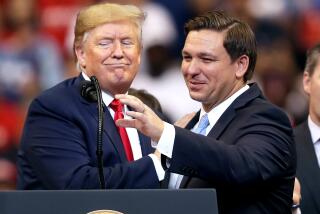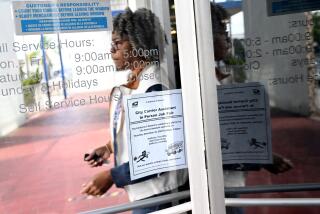3 ‘rules’ the Obama campaign broke to win
Now that President Obama has been reelected, much of the conversation has turned to his campaign’s strategy. How were they able to win despite stubborn unemployment, “super PACs” that outspent them and independent voters who generally lean right?
Here are three ways the Obama campaign bucked convention:
While we were paying attention to independent voters in swing states and wondering which candidate they’d vote for, the Obama campaign was focused on turning nonvoters, like Latinos and young people, into voters. They not only helped people register to vote, they also engaged them. “I think the real challenge for most campaigns now is understanding how to identify and pinpoint people who are on their side, and then figure out what it actually takes to motivate them to vote, turning nonvoters into voters,” said Sasha Issenberg, author of “The Victory Lab,” on Wednesday’s episode of “PBS NewsHour.” He continued: “I think that the Obama campaign understood sort of early on that that had probably more to do with the outcome of this election than necessarily persuading the small number of voters who were really up for grabs.”
Lesson learned: It means something to people when the candidate running for the nation’s highest office cares about everyone in our American family rather than ignoring the diversity in this country.
The conventional wisdom going into campaign season was that voters wouldn’t reelect Obama if unemployment was higher than 7.2%. While many were focused on this number as an absolute, the Obama campaign effectively spread a message that ultimately changed historical precedent. They reminded voters that we’re on the road to recovery, that we’re in this together and that we need to give Obama a realistic amount of time to finish the job. “Voters respond much more to the direction of change than they do to the status quo,” writes The Times’ David Lauter. “In other words, whether voters perceive the economy as getting better or worse matters more than the economy’s absolute level. And the number of jobs created in the economy provides a much better measure than the unemployment rate.”
Lesson learned: Always listen to Times Washington columnist Doyle McManus, who explained in September why 8% unemployment wouldn’t sink Obama’s reelection hopes.
The March 29 episode of “This American Life,” titled “Take the money and run for office,” showed a connection between big money (which often funds attack ads) and campaign victories. The idea that super PACs could dramatically tilt the scale in Mitt Romney’s favor worried Obama supporters. But just because these conservative independent groups had more money than the Democrats doesn’t mean they used their funds strategically.
In a Daily Intel item Thursday, “Sheldon Adelson and the Super-Rich Drying Their Romney Tears With $100 Bills,” Joe Coscarelli points to a tweet from Donald Trump that actually makes sense. Referring to Karl Rove’s American Crossroads super PAC, he tweeted: “Congrats to @KarlRove on blowing $400 million this cycle. Every race @Crossroads GPS ran ads in, the Republicans lost. What a waste of money.”
Lesson learned: Money isn’t everything. You also have to know how to spend it wisely. And, we need campaign finance reform.
ALSO:
Karl Rove can’t handle the truth
A millionaires’ guide to passing a ballot measure
Follow Alexandra Le Tellier on Twitter @alexletellier
More to Read
A cure for the common opinion
Get thought-provoking perspectives with our weekly newsletter.
You may occasionally receive promotional content from the Los Angeles Times.










